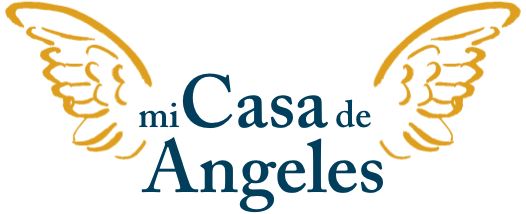MEET THE FOUNDER
Founder, Gabriella Brignardello, explains the role of Mi Casa de Angeles in fighting poverty and improving the quality of education in Peru, at the 2012 TEDxConejo.
Gabriella discusses her path from childhood to founding Mi Casa de Angeles in 2009 on an episode of Live Life and Win.
GABRIELLA'S STORY
I was born in California, U.S.A. in 1994. I am first generation American as my mom is from England and my dad is from Peru. Since I was little, my family and I have visited Peru on a yearly basis, which has allowed me to create really strong ties with my family members there as well as with the food, the culture, the language -- I love everything about the country of Peru and consider it my second home. But one of the things that is visibly 'in your face' and is just absolutely unavoidable is the poverty.
My first real experience with poverty was when I was 10 years old, specifically on Christmas Eve in 2004. My family and I had just attended Mass at the Santa Maria Chapel in Lima, and my dad and I were waiting outside on the steps. It was then when two little girls came up to us, but they had ragged clothing, dirty faces, and had little candies in their hands and pouring out of their pockets that they had obviously been selling. In that moment, I started crying because I just couldn't understand how this could be so unfair -- how I could be standing there so well dressed, excited about going home to spend Christmas with my family, to eat a feast, to open presents, while these little girls had none of this, not even enough to eat for that night. That moment planted the seed -- it made me realize that I needed to do something to change that injustice that I had seen that night.
Several years later, in November 2009, I founded Mi Casa de Angeles, a 501(c)(3) nonprofit organization, that is dedicated to its mission of supporting a higher quality of education in impoverished areas throughout Peru. We focus on education as a way of empowering the children, motivating them, giving them confidence and the chance to succeed so that they can break the barriers of poverty that currently hold them back every single day. I know that I cannot change the entire public educational system in Peru, but if I can change the life of one child, ten children, a hundred children, then that's all that matters.
I am often asked: why education? My answer is simple: sustainability. Education is a sustainable tool that not only allows individuals to change their situations and those of the people around them, but, more importantly, lasts a lifetime. But how does education relate to poverty? Well, Jose Antonio Abreu, a fellow advocate for education who focuses his work in Venezuela, explains that the most tragic thing about being poor is not that maybe you don't have a roof over your head or clothes to wear or food to eat. The most tragic thing about being poor is that those who are poor lack in self-worth -- they feel as though they can't and won't ever contribute to society. He says, however, if these individuals were given a quality education, they would begin to feel empowered and have the opportunity to reach their full potential, thereby contributing to society and the greater good.
There's a well-known proverb that explains it all: "If you give a man a fish, you can feed him for a day, but if you teach a man to fish, you can feed him for a lifetime." Poverty needs a long-term solution -- a solution that digs deep to the root of the issue and begins to make change from that point instead of simply addressing the surface level problems with temporary 'Band-Aids.' For this reason, poverty needs education.
-Gabriella Brignardello


